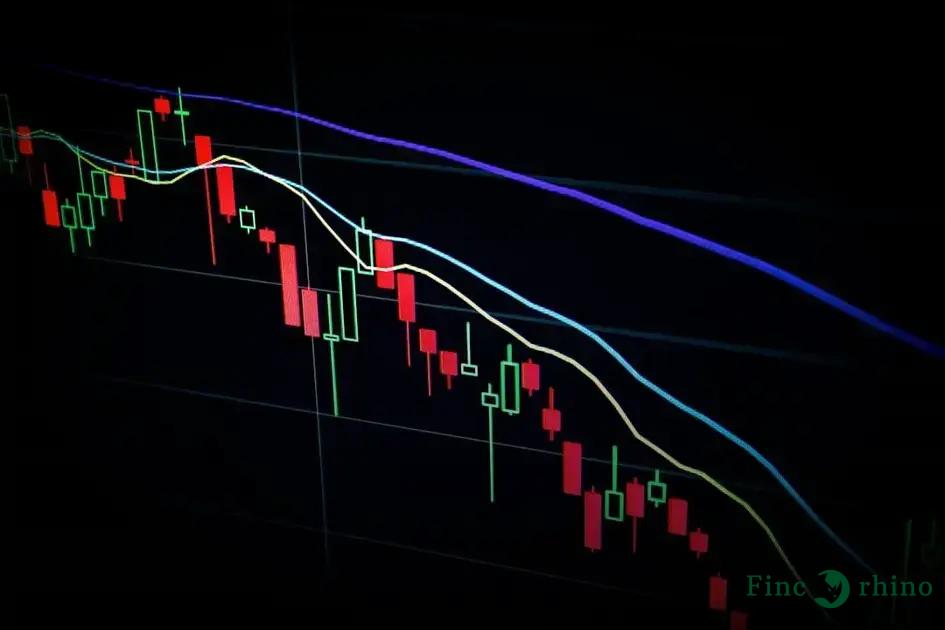In the world of cryptocurrency, scams are unfortunately prevalent. Understanding crypto scams and how to avoid them is crucial for new and experienced investors alike. This guide will help you navigate through the complexities of the crypto space by highlighting potential red flags, sharing real-life examples, and providing actionable advice to secure your investments. Keep reading to learn more about protecting yourself in the digital financial landscape.
Understanding Crypto Scams: A Brief Overview
In recent years, the world of cryptocurrency has seen a significant rise in scams, which can be attributed to the decentralized nature and increasing popularity of digital currencies. Understanding the various types of crypto scams is essential for anyone involved in this dynamic field.
Common Crypto Scams
One of the most prevalent scams is the phishing attack. Scammers create fake websites or send emails pretending to be legitimate services, tricking users into providing their private keys or passwords. Another common scam is the pump and dump scheme, where the price of a cryptocurrency is artificially inflated before being rapidly sold off by the scammers, leading to significant losses for other investors.
Recognizing Warning Signs
Scams often exhibit certain red flags. Offers promising high returns with little risk are often too good to be true. Fraudsters often use pressure tactics to create a sense of urgency. Additionally, poorly written or poorly translated communication from purported investment platforms can indicate fraudulent intent.
Protecting Yourself
To protect against these scams, ensure that you conduct thorough research into any investment opportunities. Verify the authenticity of websites, and only use well-established, reputable exchanges and wallets. Double-check URLs and be cautious when downloading software or clicking on links.
Red Flags to Watch for in Crypto Investments
In the fast-paced world of cryptocurrency, investor vigilance is crucial to avoid potential pitfalls. Bad actors frequently exploit gaps in security and investor knowledge. Recognizing red flags is an essential skill every investor should hone.
One significant warning sign is guaranteed high returns. Promises of quick profit with little risk are often too good to be true. Similarly, unsolicited offers via social media or direct messages should raise suspicion.
Do thorough research
before engaging with any unknown entities.
Another red flag is the lack of transparent information. Legitimate projects will provide detailed information about their team, goals, and technology. If there’s an absence of white papers, ambiguous explanations, or missing information about the founders, consider it a warning sign.
Poorly designed websites or the absence of an online presence can also indicate potential scams. Always check for grammatical errors or mismatches in contact details.
Beware of any project demanding quick decisions or urging immediate investment. Scammers often pressure potential victims to bypass critical thinking. Take your time to evaluate before making any commitment.
Fake endorsements from celebrities or influencers have been a common tactic to lure investors. Verify any claims and ensure that endorsements are genuine.
Lastly, the absence of a credible regulatory compliance framework should be a major concern. Reliable projects adhere to existing regulations, ensuring a level of security for investors.
Real-Life Examples of Crypto Scams
The ever-evolving landscape of cryptocurrency is unfortunately rife with scams that can trap the unwary. Here are some compelling real-life examples that illustrate the different scams that have taken place.
Ponzi Schemes
One of the most notorious examples involves a scam that promised high returns with little risk to investors. Initially, payouts came from new investments rather than profits, creating an illusion of sustainability. These schemes eventually collapsed when new investments slowed.
Phishing Scams
There have been many instances where individuals received emails or messages that appeared genuine but were crafted to trick them into providing private keys to fake websites. These phishing attempts are particularly insidious because they often replicate legitimate communications.
Fake ICOs
Initial Coin Offerings (ICOs) have been a popular method for scammers to collect funds from investors. They present a promising project with whitepapers and marketing to attract investments, but ultimately, the project has no intention of delivering a product or service.
Pump and Dump
This scheme involves artificially inflating the price of a cryptocurrency through false or misleading statements, and then selling off the asset for a profit, leaving other investors with devalued coins.
Awareness of these examples can serve as a powerful tool in identifying potential threats before falling victim to scams. The stories of those affected remind us of the importance of vigilance in the digital financial space.
Preventative Measures: Staying Safe in the Digital World
Use Secure Passwords and Authentication
Creating strong and unique passwords for each of your accounts is crucial. Consider using a password manager to keep track of passwords. Always enable two-factor authentication wherever possible for an extra layer of security. This makes it much harder for scammers to access your accounts even if they have your password.
Be Cautious with Personal Information
Scammers often attempt to collect personal data. Be wary of sharing sensitive information such as your Social Security Number (SSN), bank details, or private keys. Limit the data you disclose and verify the identity of anyone requesting this information.
Keep Your Devices Secure
Ensure that your software and devices are up to date with the latest security patches. Install a reliable antivirus program and use a firewall to block unauthorized access. This helps shield your devices from malware attacks aimed at stealing your crypto assets.
Educate Yourself and Stay Informed
Continuously educate yourself about the types of scams and frauds targeting cryptocurrency users. Join trusted online communities and follow credible sources. Developing a critical eye and staying updated on scam tactics can help you avoid falling prey to scammers.
Use Reputable Platforms and Tools
When buying or storing cryptocurrency, stick to well-known and vetted exchanges and wallets. Opt for platforms with strong security protocols and positive user reviews. Avoid platforms that sound too good to be true or lack transparency in operations.
Preserve Your Anonymity and Privacy
Utilize privacy features and anonymity tools where possible. This includes using VPNs to protect online activities and opting for privacy-focused cryptocurrencies if privacy is a concern. Many scams rely on identity and data breaches, making anonymity a critical defense.
Be Aware of Social Engineering Tactics
Social engineering scams trick you into divulging information or authorizing transfers. Be skeptical of unsolicited messages, even if they appear to come from acquaintances or authority figures. Verify any requests through another communication channel before taking action.
Resources for Reporting and Avoiding Scams
If you encounter a scam or suspect one, it’s crucial to act swiftly to protect yourself and others. Reporting scams can help authorities take action and prevent others from falling victim.
Start by gathering as much information as possible about the scam. Note the name of the platform or individual, any communication details, transaction IDs, and screenshots of interactions. This documentation will be helpful in filing a report.
There are several organizations where you can report crypto scams. In the United States, you can contact agencies like the Federal Trade Commission (FTC) and the Securities and Exchange Commission (SEC). If you’re located in a different country, check for similar regulatory bodies that handle cybercrime and finance fraud.
Additionally, you can report scams to international organizations such as Europol for Europe-based incidents or Interpol for a broader reach. They often work with local law enforcement to investigate such cases.
Online communities and platforms focused on cryptocurrency also take scam reports seriously. Engage with forums or social media groups that are vigilant about fraud and scams. Platforms like Reddit, BitcoinTalk, and specialized crypto forums can offer support and advice from fellow users who may have had similar experiences.
Beyond reporting, it is essential to learn proactive ways to dodge scams completely. Use cold wallets for storing coins, activate multi-factor authentication on your exchange accounts, and regularly update yourself on the latest security practices. Regularly educate yourself with trusted resources and never share private keys with anyone.
Staying informed and vigilant is key. Remember the wise advice to do thorough research and remain cautious of unsolicited offers that seem too good to be true.
Building a Secure Crypto Investment Strategy
Building a Secure Crypto Investment Strategy
A well-planned investment strategy is critical to ensuring your crypto investments remain secure. First and foremost, diversifying your portfolio is key. By not putting all your funds into one type of cryptocurrency, you limit potential losses if a specific currency underperforms or if unexpected market changes occur.
Another fundamental step is conducting thorough research. Rely on established sources that provide comprehensive updates and insights into market trends. Understanding market volatility and crypto technology will enable you to make informed decisions.
Consider utilizing cold storage solutions for holding large amounts of cryptocurrency. Cold storage methods, such as hard wallets, reduce the risk of online hacks, keeping your assets safe from cyber threats.
Regularly update your security measures, like using two-factor authentication and strong, unique passwords for your crypto exchange accounts, to protect against unauthorized access.
Seeking advice from financial experts can also be beneficial. Professionals can help tailor a strategy suited to your financial goals while navigating the complexities of the crypto market.





